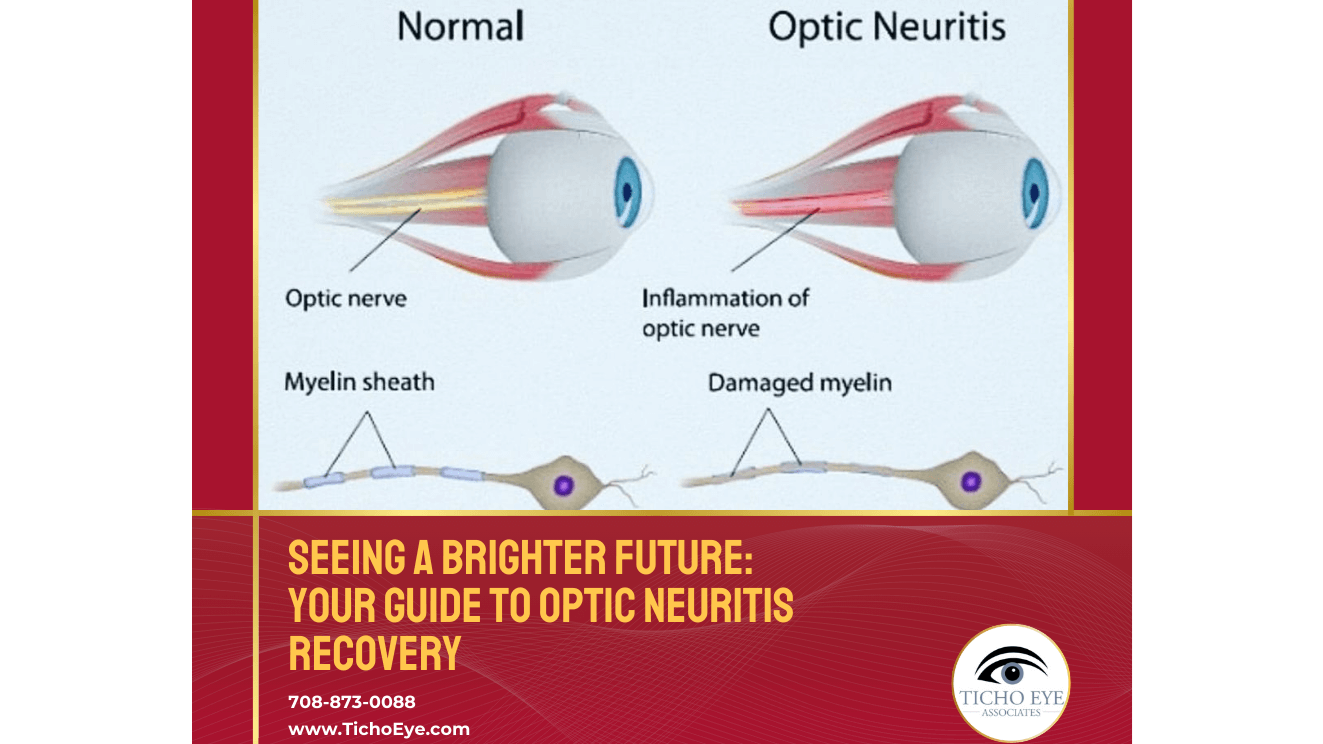Seeing a Brighter Future: Your Guide to Optic Neuritis Recovery
&srotate=0)
Imagine this: You wake up one morning and notice that your vision in one eye is suddenly blurry. Colors seem faded, and you even feel a slight ache when moving your eye. This alarming scenario is a common way that optic neuritis—an inflammation of the optic nerve—presents itself.
What’s Happening with Your Vision?
Optic neuritis typically comes on quickly. Many patients experience a sudden drop in vision, often accompanied by eye pain—especially when moving the eye. The good news is that most patients begin to see improvement within a few weeks, with continued recovery over several months (sometimes up to six months). However, some patients may experience lingering visual challenges.
Latest Optic Neuritis Research
A recent study (pre-proof available here) conducted at 12 German academic centers—including the Eye Center at the Medical Center – University of Freiburg—has provided valuable insights into optic neuritis recovery:
- Early Vision is a Strong Clue: Patients with better high-contrast visual acuity at diagnosis tend to have a smoother, more robust recovery.
- Your Unique Profile Matters: Younger patients and females often see better recovery outcomes, while older patients and males might face more challenges.
- Timely Treatment is Key: Prompt intervention, such as high-dose steroid treatment to reduce inflammation, can help accelerate the recovery process—even if it doesn’t change the long-term outcome.
These findings reinforce our everyday clinical experience: early evaluation and personalized treatment are essential for the best recovery from optic neuritis.
Your Comprehensive Evaluation and Treatment Journey
At Ticho Eye Associates, we know that an optic neuritis diagnosis can be overwhelming. That’s why we provide a thorough workup—including visual fields testing and disc OCT imaging—to assess your optic nerve's health. Our process is designed to give you a clear picture of your condition so we can tailor your treatment effectively.
Our expert team, including Benjamin Ticho, MD, Derek Dawson, MD, and Laura Sanders, MD, is dedicated to providing you with personalized, compassionate care. Here’s what you can expect on your journey to recovery:
- Immediate Evaluation: We begin with a comprehensive eye exam, including visual fields and disc OCT imaging, to accurately assess your vision and the extent of optic nerve inflammation.
- Personalized Treatment: Many patients receive high-dose steroids to reduce inflammation quickly. Although steroids may not change the final long-term outcome, they can accelerate recovery.
- Ongoing Monitoring: We track your progress with follow-up visits and repeat imaging, ensuring that any changes in your condition are promptly addressed.
Learn More & Stay Connected
- Related Blog Posts:
- Understanding Eye Inflammation: Causes & Treatments
- 5 Tips for Maintaining Healthy Vision
- What to Expect During Your Comprehensive Eye Exam
- Meet Our Team: Learn more about our dedicated specialists:
- Benjamin Ticho, MD
- Derek Dawson, MD
- Laura Sanders, MD
- Schedule Your Appointment Now: If you’re experiencing sudden vision changes or have concerns about your eye health, early intervention is crucial.
We’re Here for You
Your vision is too important to wait. We proudly serve our community from our three convenient locations:
- Chicago Ridge Office
- Tinley Park Office
- Munster Office
For complete addresses or to schedule an appointment, please visit our website or call us at 708-873-0088.
Confidence Level: High – The study’s robust findings from leading German academic centers, along with our comprehensive evaluation and clinical expertise, reinforce the importance of early, personalized care in managing optic neuritis.
Let us help guide you from those blurry beginnings toward a brighter, clearer future.